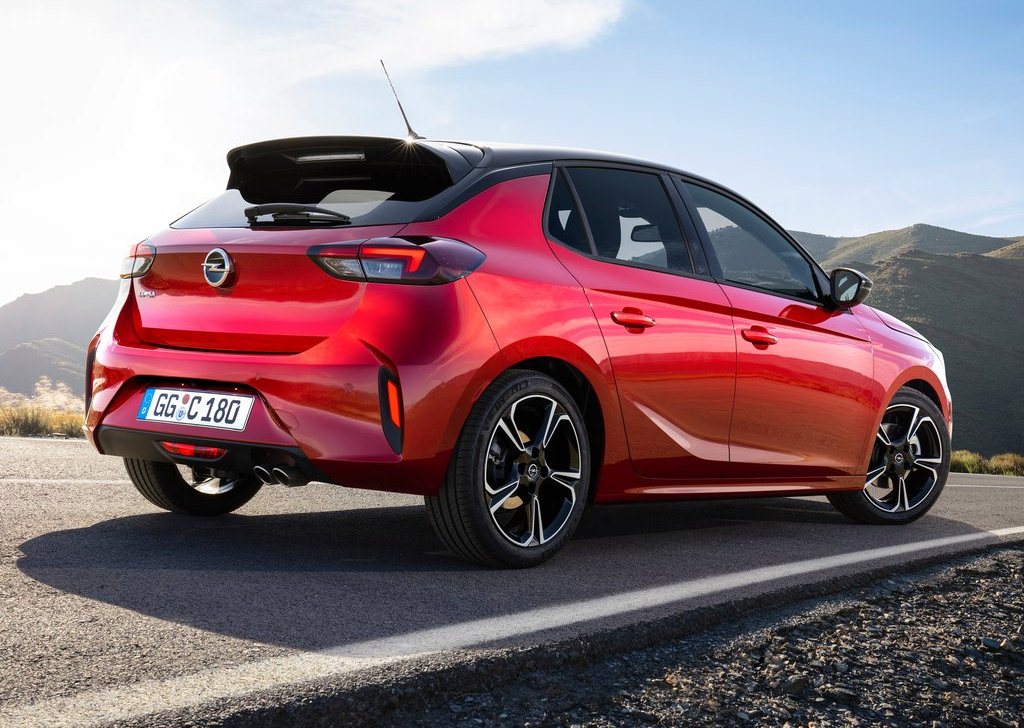The sixth generation of the Opel Corsa is in the fast lane. Just a few days after the presentation of the battery-electric version, Opel is now announcing the Corsa with classic combustion engines - more efficient, more advanced and more dynamic than ever. Sales of the 4.06-metre-long, five-door small car from the German carmaker start with particularly economical petrol and diesel engines featuring power outputs ranging from 55kW (75hp) to 96kW (130hp). Moderate fuel consumption and an engaging drive are characteristic of all powertrain options.
The gearbox range is topped by the eight-speed automatic transmission. The sporty overall impression is underlined by the lightweight design and the low seating position of the driver. In addition, passive safety is at a high level, while Opel's engineers have also finely tuned the chassis and the steering. All these qualities are already offered by the base version. Equally convincing are the advanced assistance systems, innovative infotainment and an excellent price-performance ratio. The Corsa also makes a smooth eight-speed automatic transmission available for the first time in this segment. For this price, there has never been a more high-tech, dynamic Opel Corsa.
New engines: Ideal balance between efficiency and performance
The sixth-generation Opel Corsa's all-new engine portfolio aims to offer customers an ideal balance between efficiency and an engaging drive. Compared with the current power units, the new engines return significantly reduced fuel consumption and emissions while retaining similar power outputs. The improvements begin straight away with the base 55kW (75hp) 1.2 - NEDC combined fuel consumption is 4.1 l/100km. This is a substantial improvement in comparison to the current 1.2 model with 51kW/70hp and its NEDC combined consumption of 5.9-5.6 l/100km and 134-128g/km CO2.
Higher performance is supplied by the award-winning, three-cylinder, direct-injection turbocharged engine family (Engine of the Year 2015-2018), also with 1.2-litres displacement. The all-aluminium engines produce 74kW (100hp) or 96kW (130hp). With the 74kW (100hp) engine, the new Opel Corsa needs 4.4-4.2 l/100km NEDC combined. The 1.4-litre predecessor, also with 74kW (100hp) consumed 5.8-5.4 l/100km combined according to NEDC (WLTP: 6.7-6.5 l/100km, 151-146g/km CO2). Even with the most powerful 96kW (130hp) version, which has no equivalent in the current Corsa range, the preliminary fuel consumption and emissions figures remain moderate.
Wide torque plateau for petrol engines: Top driveability
High efficiency and lively performance are characteristic of the new petrol engines. Internal friction and friction losses have been reduced to a minimum. The turbocharger also reacts immediately, with strong torque development already at low rpm. Maximum torque of the 74kW (100hp) 1.2 is 205Nm; the top 96kW (130hp) unit even develops 230Nm. With the majority of maximum torque available in a wide band, both engines are notable for their high driveability. At least 95 per cent of maximum torque is developed between 1,500 and 3,500rpm - in combination with the low vehicle weight, excellent aerodynamics and the optimised gear ratios, this enables very good driveability.
The improvement in efficiency through the engine range is reflected in the driving performance. While the new Corsa with 96kW (130hp) reaches a maximum speed of 208 km/h, its predecessor needed 15 per cent more power (110kW / 150hp) to get to 207km/h. With zero to 100km/h acceleration in 8.7 seconds, the new model is 0.2s quicker than its predecessor. Equally impressive is the 1.2 turbo with 74kW (100hp). With a top speed of 188km/h, it is 3.0km/h faster than the similarly powered predecessor. Depending on the gearbox, it also accelerates from zero to 100km/h in around 10.0 seconds - 1.0s quicker (all figures preliminary).















0 Comments